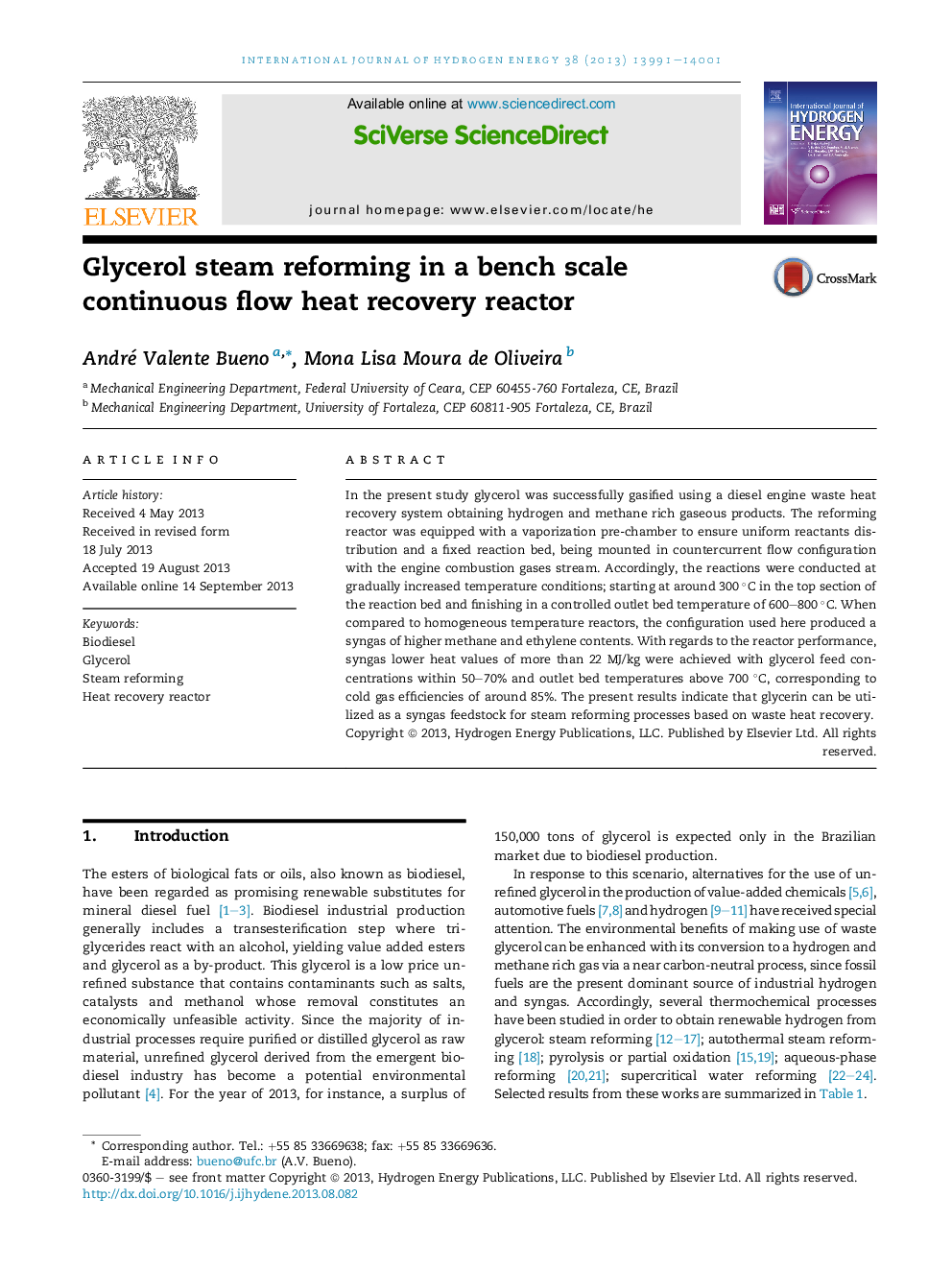| Article ID | Journal | Published Year | Pages | File Type |
|---|---|---|---|---|
| 1273069 | International Journal of Hydrogen Energy | 2013 | 11 Pages |
•Glycerol was successfully gasified by a new diesel engine waste heat recovery system.•Detailed energy efficiency data was reported for glycerol steam reforming.•Gas fraction, cold gas efficiency, syngas heat value and composition were analyzed.•A normalized heat value of 140% and a cold gas efficiency of 87% were obtained.
In the present study glycerol was successfully gasified using a diesel engine waste heat recovery system obtaining hydrogen and methane rich gaseous products. The reforming reactor was equipped with a vaporization pre-chamber to ensure uniform reactants distribution and a fixed reaction bed, being mounted in countercurrent flow configuration with the engine combustion gases stream. Accordingly, the reactions were conducted at gradually increased temperature conditions; starting at around 300 °C in the top section of the reaction bed and finishing in a controlled outlet bed temperature of 600–800 °C. When compared to homogeneous temperature reactors, the configuration used here produced a syngas of higher methane and ethylene contents. With regards to the reactor performance, syngas lower heat values of more than 22 MJ/kg were achieved with glycerol feed concentrations within 50–70% and outlet bed temperatures above 700 °C, corresponding to cold gas efficiencies of around 85%. The present results indicate that glycerin can be utilized as a syngas feedstock for steam reforming processes based on waste heat recovery.
